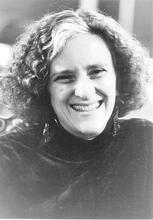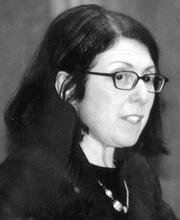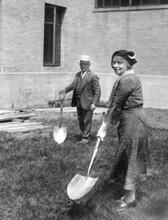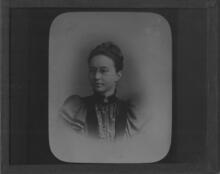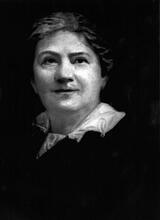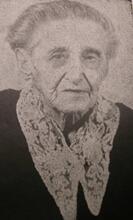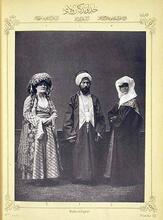Dora Spiegel
Dora Spiegel rendered distinguished service in many fields: in the organization of league sisterhoods, in education, and in publications that stimulated women’s loyalty to the synagogue and the Jewish home. She taught children, mothers, nurses, and immigrants on everything from Jewish education to English literature. In a culmination of her efforts, Spiegel served as president of the National Women’s League of the Conservative movement for sixteen years, leading the organization through the Depression and the war years and establishing scholarship funds for rabbinical students and women. She also helped found the Women’s Institute of Jewish Studies at the Jewish Theological Seminary of America, an additional step in her work to influence the lives of countless Jewish women and children.
Dora Spiegel served as president of the National Women’s League of the Conservative Movement for sixteen years, from 1928 to 1944, guiding it through the difficulties of the Depression and the war years.
Early life, education, and teaching jobs
The daughter of Rabbi Daniel Rosenberg, Dora (Rosenberg) Spiegel was born on November 27, 1879, in Hungary. The family immigrated to America when she was a young girl. In 1900, she married Samuel Spiegel, a New York physician. Spiegel’s activities turned to avenues where she could serve Jewish children and their mothers. To prepare herself for meaningful service, she returned to study, earning a B.S. at Teachers College of Columbia University in 1916 and, in 1920, an M.A. with a special diploma as Advisor to Women.
Spiegel’s interests and her dedication are reflected in the achievements of her lifetime. She taught the Bible to blind children, English to immigrant mothers, psychology to nurses, and literature to classes at the Educational Alliance, New York’s training school for the Americanization of the teeming thousands pouring into the Golden Land. She was a teacher in the newly organized Sunday schools designed to provide at least a taste of Jewish education to the children of those who had shed their old traditions as they left their old world. She was a leader in the Zionist movement at a time when many Jews were comfortable and content with their lives and saw no need to involve themselves in the establishment of a Jewish homeland.
National Women’s League
In the National Women’s League and its program, she found a synthesis of all her goals. Service to the league and its growing membership of affiliated sisterhoods became her real life’s work. She became the league’s second national secretary and, at the same time, headed the New York Metropolitan branch.
By 1933, already deeply aware of and concerned with the “grievous conditions in Germany,” the National Women’s League asked constituent sisterhoods “to make personal sacrifices in order to be able to forward monies to the Joint Distribution Committee for Germany.” Through the war years, Dora Spiegel’s “President’s Chats,” published in Outlook, the league’s magazine, encouraged affiliated sisterhoods to pledge themselves to participate in relief efforts. At the 1941 national convention in Detroit, Eleanor Roosevelt addressed the delegates on “Women in Defense,” and within one month, league members across the country began working for a nation at war. In March 1943, Dora Spiegel reported, “Over 100,000 of our membership are working in every single branch of the war effort, giving of their blood, selling bonds, turning assembly halls into emergency hospitals, enlisting in motor corps, serving in canteens, taking first aid courses, and teaching first aid.”
It was under Spiegel’s direction that the National Women’s League began its Torah Fund Campaign, establishing the Seminary Dormitory and Scholarship Fund that enabled rabbinical students to devote their full time to study. She encouraged the league to help create the Mathilde Schechter Scholarship Fund and the Cyrus Adler Scholarship Fund, and the idea of building a dormitory for women students began to grow during her term of office.
Other facets of Spiegel’s legacy
Dora Spiegel rendered distinguished service in many fields: in the organization of league sisterhoods, in education, and in publications that stimulated women’s loyalty to the synagogue and the Jewish home. She helped found the Women’s Institute of Jewish Studies at the Jewish Theological Seminary of America and influenced the lives of countless Jewish women and children.
Failing health forced Dora Spiegel to step aside before the conclusion of her last term of office. She died on February 15, 1948.
AJYB 50:523.
National Women’s League of the United Synagogues of America. Seventy-five Years of Vision and Voluntarism (1992).
Obituary. NYTimes, February 16, 1948, 21:4.
UJE; Women’s League for Conservative Judaism. They Dared to Dream (1968).
WWIAJ (1928, 1938).

